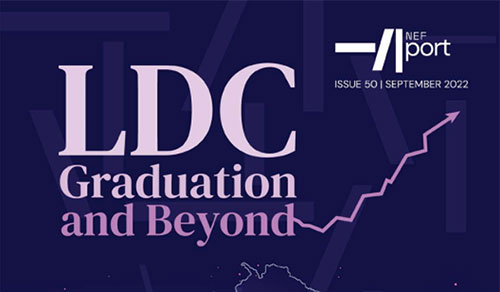Shifting Sands: The AI Landscape And The Middle East's Diminished Role

Table of Contents
Lack of Investment in AI Research and Development
One of the primary reasons for the Middle East's lagging AI landscape is the insufficient investment in research and development. Compared to global frontrunners like the United States, China, and the European Union, funding allocated to AI initiatives in the Middle East remains significantly lower. This shortfall affects both government-funded research and private sector investment.
- Comparative Investment: A stark contrast exists between AI investment in the Middle East and other regions. While billions are poured into AI research and development in North America and Asia, the Middle East's investment pales in comparison, hindering the creation of cutting-edge AI technologies.
- Venture Capital Scarcity: AI startups in the Middle East struggle to secure the necessary venture capital funding to scale their operations and compete globally. This lack of access to capital limits growth and innovation.
- Limited Government Support: Government support for AI education and skills development is also limited. Substantial investment in specialized educational programs and training initiatives is crucial to fostering a skilled AI workforce.
Talent Acquisition and Brain Drain
Attracting and retaining top AI talent is another significant hurdle. The Middle East faces a "brain drain," where skilled professionals, lured by better opportunities and more developed AI ecosystems in other parts of the world, leave the region. This outflow of expertise severely hampers the growth of the local AI sector.
- Shortage of AI Specialists: The Middle East currently suffers from a critical shortage of AI specialists, limiting its ability to drive innovation and compete effectively in the global AI arena.
- Global Competition for Talent: Highly skilled AI professionals are in high demand worldwide. The Middle East needs to offer competitive salaries, research opportunities, and a supportive environment to attract and retain these individuals.
- Investing in Education: Significant investment in developing high-quality AI education programs, from undergraduate to postgraduate levels, is crucial to cultivate a homegrown talent pool.
Data Accessibility and Privacy Concerns
Data is the lifeblood of AI. However, accessing and utilizing data in the Middle East presents challenges. Strict data privacy regulations, while necessary for protecting sensitive information, can inadvertently hinder data sharing and collaboration—essential elements for AI development.
- Data Scarcity: The availability of large, high-quality datasets necessary for training advanced AI models is limited in the Middle East. This limits the potential for developing sophisticated AI applications.
- Data Privacy Regulations: While essential for protecting individual rights, stringent data privacy regulations can hinder the collaborative data sharing needed for effective AI research and development.
- Balancing Privacy and Progress: The Middle East needs to develop clear guidelines and frameworks that balance data privacy concerns with the needs of AI development, fostering a culture of responsible data utilization.
Infrastructure Limitations
Developing and deploying advanced AI systems requires substantial computational power and robust digital infrastructure. The Middle East faces limitations in both areas, hindering its capacity to fully leverage the potential of AI.
- High-Performance Computing: Access to high-performance computing resources, such as powerful servers and specialized hardware, is limited in many parts of the Middle East.
- Internet Connectivity: In some regions, limited internet access and underdeveloped digital infrastructure pose significant obstacles to AI development and deployment.
- Cloud Computing Investment: Investment in robust cloud computing infrastructure is crucial to providing the necessary computational power and scalability for advanced AI applications.
Opportunities for Growth and Strategies for Improvement
Despite the challenges, the Middle East possesses significant opportunities for growth in AI. By focusing on specific applications relevant to regional needs and implementing strategic initiatives, the region can significantly boost its AI capabilities.
- Targeted AI Applications: Prioritizing AI applications relevant to regional challenges, such as healthcare, agriculture, and renewable energy, can generate significant economic and societal benefits.
- Public-Private Partnerships: Fostering collaboration between government entities and private sector companies through public-private partnerships can accelerate innovation and investment in AI.
- Investing in AI Education: Continued and increased investment in AI education and training programs is essential to create a skilled and competitive workforce.
- Data Governance Frameworks: Developing robust data governance frameworks that balance data privacy and AI development will unlock the potential of data for innovation.
Conclusion: Reclaiming the Middle East's Position in the AI Revolution
The Middle East's diminished role in the AI revolution stems from a confluence of factors: insufficient investment in research and development, a shortage of skilled professionals, data accessibility challenges, and infrastructural limitations. However, the region possesses significant untapped potential. By addressing these challenges through strategic investments in education, infrastructure, and fostering public-private partnerships, the Middle East can reclaim its rightful position in this transformative technological landscape. Understanding the complexities of the Middle East's diminished role in AI is crucial. Let's work together to foster innovation and reclaim the region's rightful place in this transformative technological landscape, driving advancements in Middle East's AI development and securing a prosperous future powered by AI.

Featured Posts
-
 Ravens Cut Justin Tucker Impact And Analysis Of The Release
May 07, 2025
Ravens Cut Justin Tucker Impact And Analysis Of The Release
May 07, 2025 -
 Wynns New Seafood Restaurant Plans Finally Unveiled
May 07, 2025
Wynns New Seafood Restaurant Plans Finally Unveiled
May 07, 2025 -
 Is Anthony Edwards Playing Tonight Lakers Timberwolves Game Update
May 07, 2025
Is Anthony Edwards Playing Tonight Lakers Timberwolves Game Update
May 07, 2025 -
 Analysis The Carney Trump White House Encounter And Its Implications
May 07, 2025
Analysis The Carney Trump White House Encounter And Its Implications
May 07, 2025 -
 Terapia Y Rendimiento Deportivo El Ejemplo De Simone Biles
May 07, 2025
Terapia Y Rendimiento Deportivo El Ejemplo De Simone Biles
May 07, 2025
Latest Posts
-
 Third Ldc Future Forum Building Resilience In Least Developed Countries
May 07, 2025
Third Ldc Future Forum Building Resilience In Least Developed Countries
May 07, 2025 -
 Apo Group Press Release Minister Tavios Engagement At The Ldc Future Forum In Zambia
May 07, 2025
Apo Group Press Release Minister Tavios Engagement At The Ldc Future Forum In Zambia
May 07, 2025 -
 Full Speed Ahead A Practical Guide To Ldc Graduation For Ca Aspirants
May 07, 2025
Full Speed Ahead A Practical Guide To Ldc Graduation For Ca Aspirants
May 07, 2025 -
 Zambia Visit And Ldc Future Forum Minister Tavios Participation Apo Group Press Release
May 07, 2025
Zambia Visit And Ldc Future Forum Minister Tavios Participation Apo Group Press Release
May 07, 2025 -
 Prioritizing Ldc Graduation A Roadmap To Becoming A Chartered Accountant
May 07, 2025
Prioritizing Ldc Graduation A Roadmap To Becoming A Chartered Accountant
May 07, 2025
